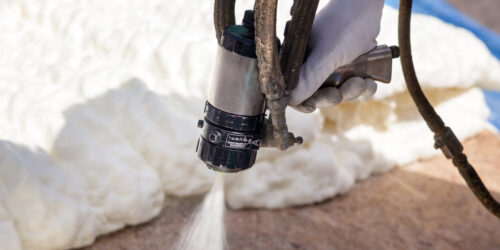How Long Does Spray Foam Insulation Last?
Are you wondering how long spray foam insulation lasts? Spray foam has become one of the most popular types of insulation around over recent years and has now been used to keep properties warm and reduce energy bills for more than three decades. In this article, we’ll talk about what spray foam insulation is, what its benefits are, what the disadvantages of spray foam are and answer the question ‘how long does spray foam insulation last’. Read on to find out more about ‘how long does spray foam insulation last’ and find out much more about its pros and cons.
Interested in spray foam already? Use our quote comparison tool to see how much you'd pay. It only takes a minute.
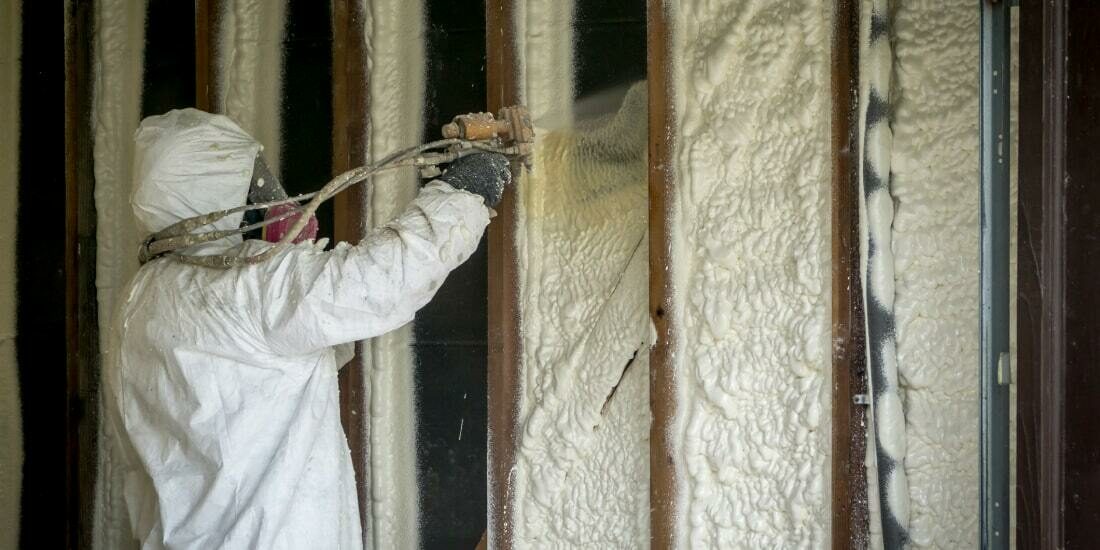
What's On This Page?
Click the links below and head straight to a specific section of the article.
- The Key Benefits of Spray Foam Insulation
- What Are the Key Benefits of Insulation?
- What Kinds of Building Are Suitable For Spray Foam Insulation?
- Spray Foam Insulation Longevity
- Are There Any Disadvantages to Spray Foam Insulation?
- Does Spray Foam Insulation Have Any Health Benefits?
- How Long Has Spray Foam Insulation Been Around?
- Are There Any Other Benefits Attached to Spray Foam Insulation?
- Conclusion
The Key Benefits of Spray Foam Insulation
One of the major advantages of spray foam insulation is that it normally lasts a great deal of time once it has been installed. It’s best to leave things to the professionals if you are thinking about adding spray foam insulation to your home as things can become very costly in terms of time and money if something does go wrong during the installation process. Spray foam isn’t an easy product to install, and many people have come to regret their decisions to go down the DIY route.
A major reason why spray foam insulation lasts so long is that it has a cellular composition. This means it doesn’t slump over time like other forms of insulation do. Spray foam is also rodent-proof. Rodents don’t feed off this kind of insulation, which means you can expect it to remain intact and efficient for a very long time. Spray foam also creates an air seal, which is another reason why it lasts so long. It’s only likely that you will need to replace your spray foam insulation if your whole property is affected by a disaster.
Other popular forms of insulation including cellulose and fibreglass insulation only tend to last for around 15 years. Once they reach this milestone, they can start to sag, slump and become less effective. If this does happen to your insulation, there’s a big chance your energy bills could start to rise considerably. Your home could start to feel less comfortable as an increasing amount of warmth escapes from it.
What Are the Key Benefits of Insulation?
Insulation is designed to keep warm air inside your home and help you keep your energy bills in control. It can also defend you and your home from pests and air pollutants. Fibreglass and cellulose have become less popular over the years due to the way they tend to sag and come loose from their framing over time. When this happens, you are likely to see gaps and passageways that enable more cold air to enter your home. Spray foam insulation is widely regarded as a highly efficient product as well as an innovative one, and it has been installed in homes across the UK and around the world.
To know how much loft insulation is, see our guide.
What Kinds of Building Are Suitable For Spray Foam Insulation?
Spray foam insulation is designed to be installed in all kinds of buildings. It has been installed not only in smaller residential homes but larger commercial buildings too. Once it has been applied it can grow to more than 100 times the size it was originally. It expands once it comes into contact with the atmosphere.
As spray foam is able to expand naturally, it can be installed in various parts of the home as well as commercial premises. Even if there are obstructions such as boilers and pipes, it can expand around them. It’s said that spray foam insulation can reduce heat loss by up to 95%, so it’s clear to see why it’s so efficient at reducing energy bills.
Another big benefit of spray foam insulation is that it can reduce sound transmission, which is great for people seeking more privacy. It can enhance the quality of the air inside your home and help you reduce your carbon footprint. One more big draw of spray foam insulation is that it can help you overcome problems like internal dampness.
Spray Foam Insulation Longevity
Some people wonder if spray foam is too good to be true after asking how long it lasts. As long as spray foam insulation is installed by experienced and skilled professionals, it can last for several decades. Its longevity is largely down to the fact that it is manufactured from an inert polymer. This means it can last for many years without requiring any real maintenance. Although spray foam insulation can seem expensive, it delivers an excellent return on investment over a few years by helping you cut your home heating costs. Another great reason for installing spray foam insulation is that it can help you add value to your home so you can get more for it if you do decide to sell.
Are There Any Disadvantages to Spray Foam Insulation?
As with most things in life, there are some disadvantages you’ll need to think about if you are considering installing spray foam insulation. The upfront costs are quite high even if it will help you save money in the long run, which means many people do find themselves looking at other insulation options. It can take a few years for it to pay for itself, and it’s not advisable to attempt a DIY installation as you could find yourself wasting a great deal of time and money if you don’t install it correctly. The installation process can also be quite messy, and there are some health risks linked to it. Open-cell spray foam insulation can also absorb water.
Does Spray Foam Insulation Have Any Health Benefits?
Allergies and asthma can be caused by airborne pollutants that enter your property through very small crannies and crevices. Spray foam insulation can seal each and every one of these cracks to help you reduce internal pollution and help you improve the quality of the air inside your home. It can also prevent the growth of mould, which can cause a range of health issues.
How Long Has Spray Foam Insulation Been Around?
Spray foam insulation has been around since the 1980s but has become much more popular over recent years as other types of insulation have seen their popularity decline.
Are There Any Other Benefits Attached to Spray Foam Insulation?
Another big benefit of this kind of insulation is that it retains its properties even if it does get very wet. As the foam can expand into even the smallest nooks and crannies, it can totally prevent water from entering your home. It can also prevent temperature fluctuations inside your building, allowing you to maintain a consistent climate. The reason for this is that it creates an air-tight seal to defend your property from the elements. Other insulation products don’t stick to each surface, so they can’t provide this type of seal.
Allergens enter your home through your walls rather than doors and windows. Spray foam insulation can stop this from happening. Rodents and insects are not attracted to this kind of insulation because they can’t feed off it or use it as a nest. Spray foam insulation is also a non-toxic option, and it won’t release dangerous contaminants like formaldehyde into your home or business premises. As the insulation dries very quickly, it tends to be ready within around 24 hours or so.
If you’re looking for a way to reduce your energy consumption and your carbon footprint, spray foam insulation could be for you. This is because it reduces your reliance on your home or office heating systems. Spray foam also has a high R-value, so it’s resistant to heat. It can also make your home stronger due to the way that it glues building materials together. Once your spray foam insulation has been installed, your heating systems won’t need to work as hard. This is because they won’t need to compensate for lost air. You can expect your spray foam insulation to pay for itself within around four years, whether you opt for an open-cell or closed-cell system. If your home is energy-efficient, you’re likely to get more for it if you do decide to sell it at some point.
Conclusion
There are many big advantages to having spray foam insulation installed in your home. Spray foam insulation can make your home cheaper to run and make you more comfortable throughout the year. Although spray foam insulation isn’t for everyone, as has enabled millions of people to cut their fuel bills as well as their carbon footprints.
Related articles
View all Insulation articles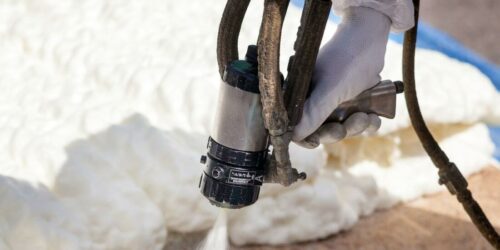
Can I Install DIY Spray Foam Insulation Myself?
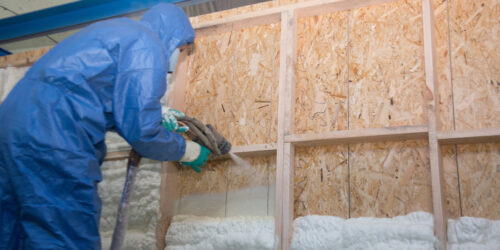
Six Benefits of Spray Foam Insulation
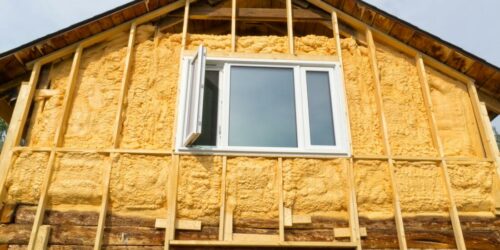
Is My Property Suitable for Spray-On Insulation Foam?
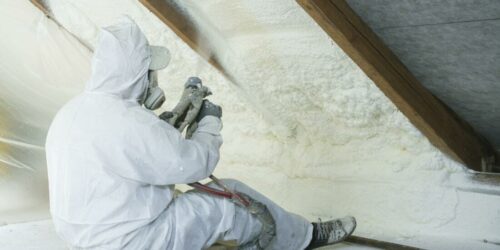
Why Consider Spray Foam Insulation in Roofs?
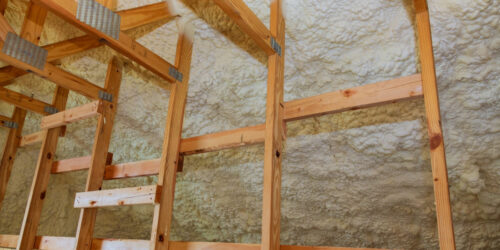
Icynene Spray Foam Insulation: A Complete Guide
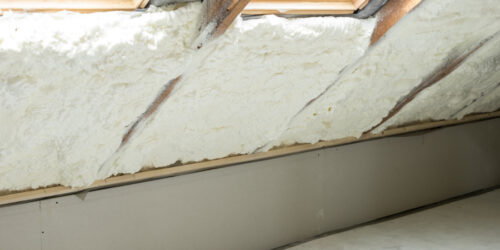
Spray Foam Insulation Installers: What to Expect
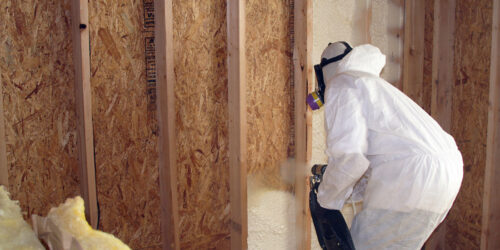
Open Cell vs Closed Cell Spray Foam Insulation: What’s The Difference?
